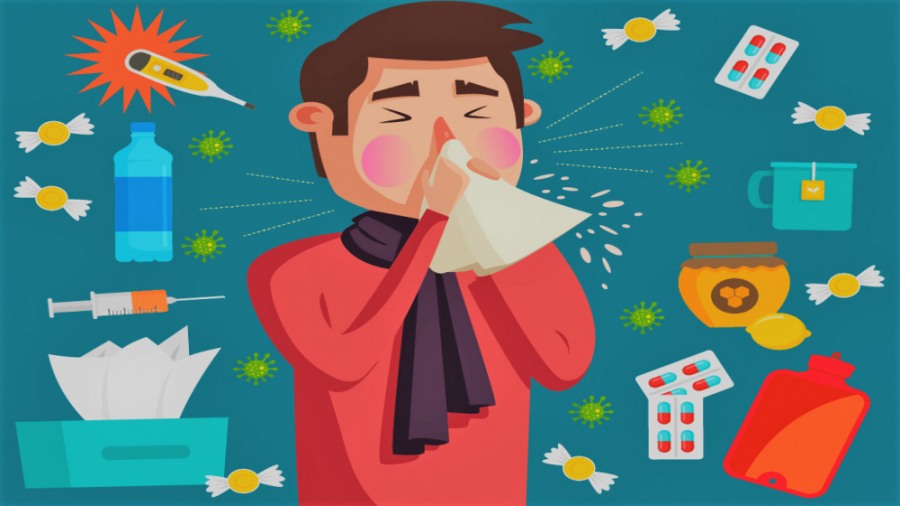What to Do (and Not to Do) at the First Sign of the Flu
A slight tickle in your throat, body aches, and a sudden fever could be some of the first signs that you’re coming down with the flu.
It’s crucial that you recognize the symptoms early so you can start taking care of yourself.
It’s especially critical for young children, older adults, pregnant women, or people with conditions that affect their respiratory or immune systems to seek medical attention quickly.
These tips will not only help you feel better faster, but also help prevent the spread of this highly contagious virus to other people in your community.
Recognizing the signs of the flu
It’s easy to mistake the flu for a minor cold at first. While the flu shares many of the symptoms of the common cold, symptoms of the flu are typically more severe and come on quicker.
Early signs of the flu include:
• fatigue
• sudden fever (usually above 100°F [38°C])
• scratchy or sore throat
• cough
• chills
• muscle or body aches
• runny nose
Keep in mind that a fever is common in the early stages of the flu, but not everyone with the flu will have a fever.
What to do
If you notice that you’re experiencing signs of the flu, follow these tips:
• Wash your hands frequently to prevent the spread of the virus. Aim for about 20 seconds of scrubbing
with soap and water before rinsing.
• Cover coughs and sneezes with your arm instead of your hands, or direct them into a disposable tissue. The flu is highly contagious and easily spreads through the air if you cough or sneeze.
• Eat healthy to boost your immune
system. Though you might lose your appetite when you’re sick, eating small meals rich in fruits and vegetables will help give your body the strength
it needs to fight off the virus.
• Drink lots of fluids, especially water, tea,and low-sugar electrolyte drinks.
• Purchase the essentials, such as tissues,over-the-counter pain relievers, decongestants, cough suppressants, your favorite tea, and fresh fruits and vegetables to snack on while you’re at home. If you’re already feeling ill, though, it might be a good idea to ask a friend or loved one to do your shopping for you.
• Alert your workplace. It can be hard to take off from work, but your boss will appreciate it if you stay home to avoid getting your co-workers sick.
• Stay home and rest. Ultimately, the best treatment for the flu is to get enough rest.
• Be diligent about hygiene. Wash your hands frequently. You can keep antibacterial wipes on hand to combat the spread of germs.
What not to do
At the first signs of the flu, avoid doing any of the following:
• Don’t go to work or school. You’re contagious a day or two before your symptoms begin and remain contagious for up to five to seven days after you started feeling sick.
• Don’t shake people’s hands or hug them. You don’t want to play a role in spreading the virus, so avoid making physical contact with others or sharing food and drinks.
• Don’t push yourself. The flu is a progressive illness, meaning your symptoms will worsen before they get better.
Depriving your body of rest in the first couple days after symptoms start can end up lengthening the time it takes for you to recover.
• Avoid processed foods and sugar,as these foods won’t give you many nutrients.
• Try not to skip meals. It’s fine to eat a little less when you have the flu, but your body still needs nutrition and energy to fight off the virus. Soup, yogurt, fruits, vegetables, oatmeal, and broth are all great options.
• Don’t venture into crowded places since the flu is highly contagious.
• Be cautious with unproven herbal remedies. If you want to try an herbal remedy, be careful. Herbs and supplements aren’t scrutinized by the FDA for quality, packaging, and safety.





ارسال دیدگاه
مجموع دیدگاهها : 0در انتظار بررسی : 0انتشار یافته : ۰